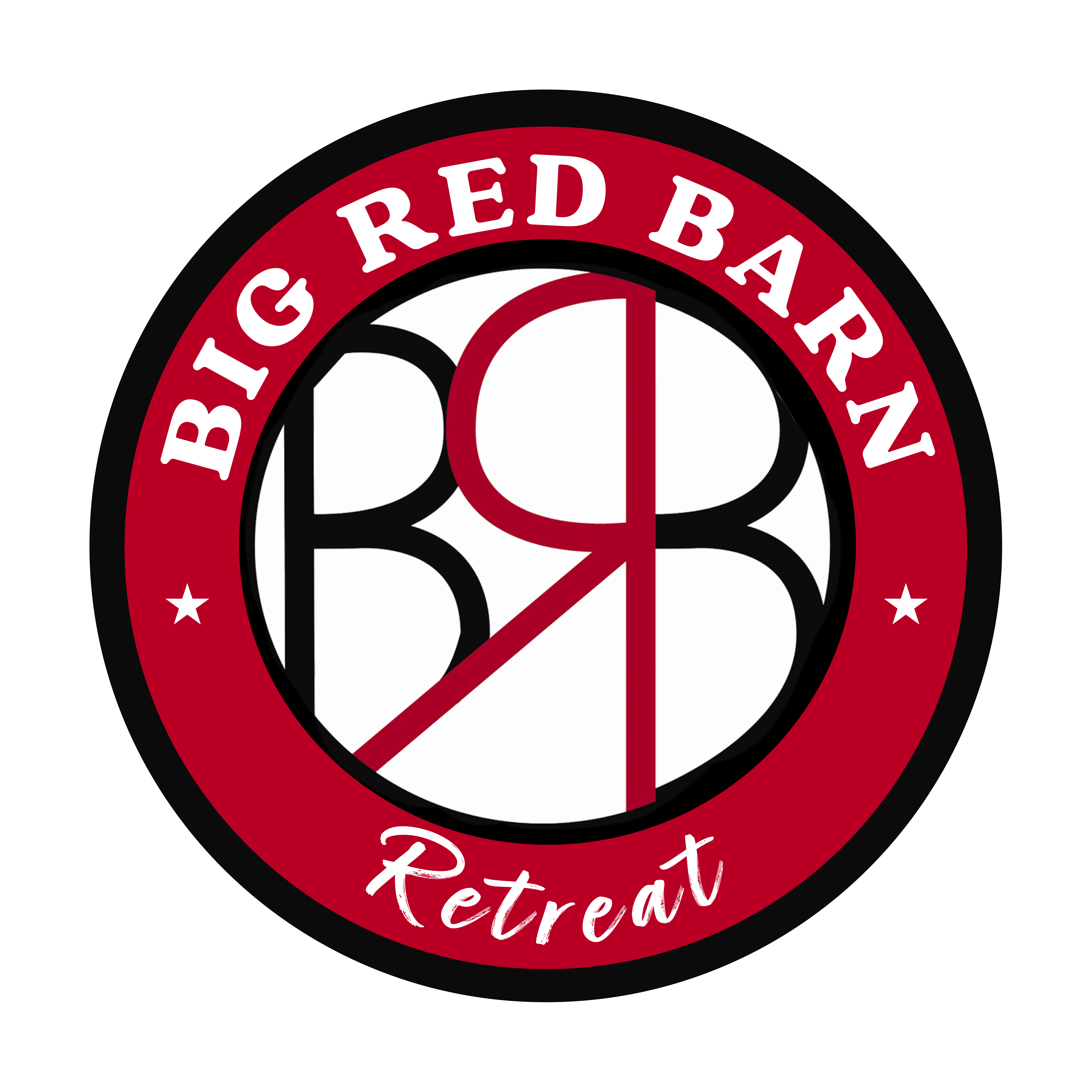MEDIA KIT
Thank you for your interest in the Big Red Barn Retreat. This page contents FAQs and details about our work and team. Contact us at [email protected]
FREQUENTLY ASKED QUESTIONS
The Big Red Barn Retreat (BRBR) was founded in 2014 by Barbara Irons and Sutton Shaw to honor their late husband and father, Leon Irons. Leon Irons served in the US Navy aboard the USS Independence after receiving an honorable discharge. After serving his country, he began a successful career in the restaurant business, where eventually he would come to own and operate multiple Sonic Drive-In units with his family across the Southeast United States. Leon passed away in 2009, but left an indelible legacy in the hearts of many.
The BRBR initially began with offering services to help veterans and first responders who are struggling with PTSD and transitioning out of the military, which included equine-assisted psychotherapy, yoga, and healing art classes and workshops. In 2015, the BRBR began hosting daytime retreat programs as well for drill sergeants based at Fort Jackson as part of the Cadre Resiliency Program.
In 2019, the Big Red Barn Retreat was selected by Boulder Crest Foundation to be a partner organization offering the breakthrough program Warrior PATHH (Progressive and Alternative Training for Helping Heroes). In 2020, work began on building the Leon Irons Lodge that would later become the home of the Big Red Barn Retreat’s Warrior PATHH program. By October of 2020, the team at the Big Red Barn Retreat, working closely with Boulder Crest, launched the Warrior PATHH program, the only program scientifically proven to facilitate and cultivate post-traumatic growth in South Carolina.
In 2022, the Big Red Barn Retreat was honored to be selected by Boulder Crest to launch the Struggle Well program in South Carolina, a prevention-focused program based on the science and theory of post-traumatic growth. By partnering with local law enforcement, we began to fundamentally change the culture of law enforcement and first responders from the inside and out.
The idea that military, veteran, and first responder communities can live great lives in the aftermath of trauma is the foundation of the breakthrough programs like Warrior PATHH and Struggle Well . The need is great – traditional approaches to mental health are not working for these communities and a new and innovative approach is desperately required. In fact, an estimated 20 veterans die by suicide every day, and annually, more first responders die by suicide than in the line of duty.
The Big Red Barn Retreat is honored to partner with Boulder Crest as they pioneering training programs based on the science of PTG. These research-backed programs — typically offered at no cost to participants — train members of the military, veterans, and first responders to experience PTG and thrive in the aftermath of traumatic events.. Learn more at thebigredbarnretreat.org and connect on Facebook, Instagram, LinkedIn, Tiktok, and YouTube.
The Big Red Barn Retreat (BRBR) was founded in 2014 by Barbara Irons and Sutton Shaw to honor their late husband and father, Leon Irons. Leon Irons served in the US Navy aboard the USS Independence after receiving an honorable discharge. After serving his country, he began a successful career in the restaurant business, where eventually he would come to own and operate multiple Sonic Drive-In units with his family across the Southeast United States. Leon passed away in 2009, but left an indelible legacy in the hearts of many.
First responders: Active or retired police officers, sheriff’s deputies, fire fighters, EMS and federal law enforcement or intelligence agency personnel.
Military & Veterans: Combat veterans (former, active, and retired military members), including National Guard and reservists.
The Big Red Barn Retreat serves those that dedicate their life to serving a greater good. Oftentimes, these “heroes” inspire strength and courage in others. These heroes include active-duty military service members, veterans, and first responders to include firemen, law enforcement, and EMTs.
It is our belief that those that dedicate their life to serving others deserve our help. More critically, suicide claims the lives of 20 veterans every day, and more first responders die annually by suicide than in the line of fire. It is estimated that 30-40% of our nation’s first responders are struggling with significant mental health challenges. The vast majority of these men and women find traditional mental health approaches are inaccessible or ineffective. Most traditional efforts focus on diminishment, disorder, dysfunction, and diagnosis, and there is little attention to reducing the stigma around seeking support in these communities.
In this world, the vast majority of those who find themselves struggling believe that it will never get better. These communities desperately need and deserve a new and innovative approach; An approach that is comprehensive, founded in hope and possibility, and one that offers the possibility of growth after struggle in a setting where stigma is addressed head-on, and owning your struggle and healing process is encouraged. For every 1 healthy military member or first responder, hundreds of other people are exponentially impacted by their growth.
Through Training & Education: By delivering post-traumatic growth-based programs that enable participants to thrive after experiencing trauma through research-supported, evidence-based methods.
Through Community & Technology: By sustaining the impact of all training and education efforts for our participants face-to-face with offering services on-premise at the Big Red Barn Retreat, as well as at other locations across the state. As well as, connecting communities online (via apps). The Warrior PATHH and Struggle Well programs are not catch and release, but rather continuous and supportive.
Through Evaluation: By measuring the impact of the Warrior PATHH and Struggle Well training programs through qualitative, quantitative, and anecdotal means including the well-validated Post-traumatic Growth Inventory (PTGI-X) in order to facilitate the evolution of PTG methodologies.
